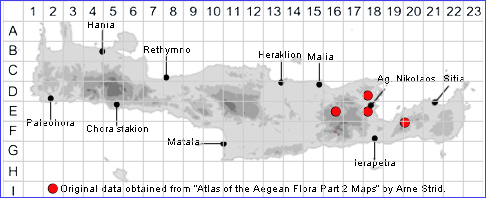SPECIES DESCRIPTION
IRIS GERMANICA
Family and Genus:- See- IRIDACEAE/Subgen. IRIS/Sect. IRIS
Common Names:- Bearded iris
Homotypic Synonyms:- Iris × spectabilis.
Meaning:- Iris (L) After Iris, the mythological messenger of the gods of the
rainbow.
Germanica (L) From Germany, German.
General description:- A robust medium to tall, rhizomatous perennial.
Rhizome:-
1) Thick, spreading on the surface of the ground.
Stems:-
1) 40-90 cm, stout, with branches at least 5 cm long in the upper half, the lower
flowers well-exserted from the subtending bract even in bud.
Leaves:-
1) 30-70 cm x 20-35 mm, ensiform, more or less straight. somewhat glaucous.
Flowers:-
1) (3-)4(-5), bluish-violet, or white tinged with blue; pedicels, very short.
2) Spathes, 35-55 mm, scarcely exceeding the hypanthial tube, scarious in the
upper 1/2-2/3, often tinged with purple.
3) Hypanthial tube, 17-25 mm.
4) Falls, 55-90 x 40-60 mm, cuneate-obovate, without a distinct claw.
5) Standards, 55-90 x 45-60 mm, broadly elliptical, with a short, wide claw.
Fruit:-
1) Seeds, pyriform, rugose, reddish-brown.
Key features:-
1) Lower flowers on distinct branches, well-exserted from subtending bract before
anthesis.
2) Stem, usually with 4 flowers, the 2 uppermost very close together.
3) Spathes, 35-55 mm, scarcely exceeding the hypanthial tube.
4) Perianth-segments, 40-60 mm wide.
Habitat:- Dry rocky habitats, field margins, graveyards, cultivated land, roadsides.
0-900 m. or higher.
Distribution:- Native to NW Greece, but Aegean records refer to plants naturalised
from cultivation. The true distribution on Crete is unknown owing to it being poorly
recored..
Flowering time:- Mar-June.
Photos by:- Steve Lenton

